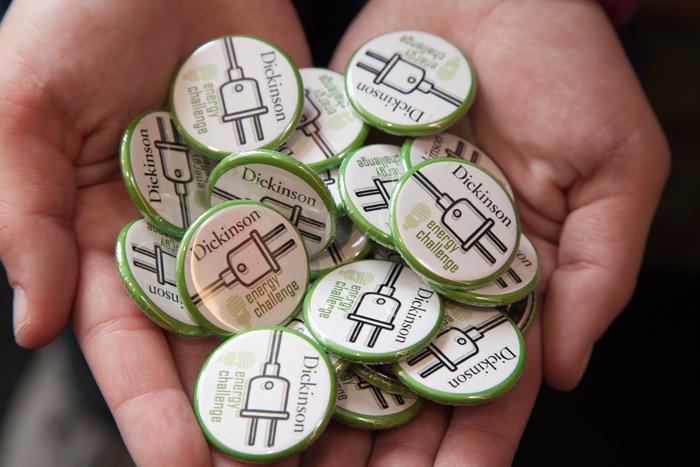Green-Power Champion

Dickinson recognized as the Centennial Conference’s largest green-power user
by Christine Dugan
The U.S. Environmental Protection Agency (EPA) has named Dickinson the 2014-15 Individual Conference Champion of the College & University Green Power Challenge for using more green power than any other school in the Centennial Conference (CC). This is the sixth-consecutive year that Dickinson has led the CC in the challenge.
Dickinson beat its conference rivals by using 18
million kilowatt-hours of green power, representing 90
percent of the college’s annual electricity usage. According to the EPA, that
is equivalent to the electricity use of nearly 2,000 average American homes
annually.
Thirty-nine collegiate conferences and 90 schools competed in this year’s
challenge, collectively using nearly 2.4 billion kilowatt-hours of green power. Since
April 2006, EPA’s Green Power Partnership has tracked and recognized the
collegiate athletic conferences with the highest combined green-power use in
the nation.
Green power is zero-emissions electricity that is generated from
environmentally preferable renewable resources, such as wind, solar,
geothermal, eligible biogas, biomass and low-impact hydro. Using green power
helps accelerate the development of new renewable energy capacity nationwide
and helps users reduce their carbon footprints.
Earlier this month, The Princeton Review named Dickinson one of the
most environmentally responsible colleges in the nation by placing it at No. 5
on its list of the Top 50 Green Colleges. The Princeton Review’s Guide
to 353 Green Colleges profiles schools with the most exceptional commitments to
sustainability based on their academic offerings and career preparation for
students, campus policies, initiatives and activities. Days later, the Dickinson College Farm represented the
Commonwealth of Pennsylvania in Parade magazine’s special Earth Day
Across America feature, which takes a state-by-state look at "50
cool eco-friendly things Americans are doing." The article highlighted the
College Farm’s USDA organic certification, contributions as a food producer for
the college’s Dining Hall, donations to the Project SHARE food bank and
sustainable food-waste practices.
Learn More
Published April 29, 2015